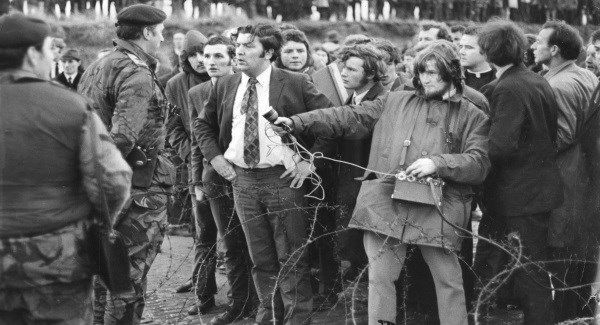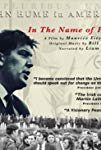Eye For Film >> Movies >> In The Name Of Peace: John Hume In America (2017) Film Review
In The Name Of Peace: John Hume In America
Reviewed by: Jennie Kermode

For many long years, Northern Ireland’s Troubles were considered an intractable problem. Outsiders viewed the country as hopelessly polarised, with one group Catholic, committed to an Irish identity and keen to see the island reunified whilst the other was Protestant, identified as British and sought to remain under London rule. Of course the real picture was more complicated, in that a lot of ordinary people were quite willing to talk and wanted to find a path to peace, but no opportunity seemed to present itself. Out of this, in the mid-Sixties, came anti-poverty campaigner John Hume, who was subsequently elected to Parliament as an independent Nationalist and went on to conceive that the key to it all lay in the influence of America. This documentary explores what happened next.
Packed with powerful archive footage, this is a film that immediately creates a powerful sense of time and place. It also contextualises events remembered too often in isolation, for instance by showing a key confrontation between Hume and a group of Nationalist protestors on a beach just before Bloody Sunday. Director Maurice Fitzpatrick is interested in getting at the behind the scenes dialogues that leveraged the politics one could see in public, and US politicians including presidents Jimmy Carter and Bill Clinton discuss the impression Hume made on them as well as the strategies through which he persuaded them to invest in the peace process. Where others made political capital with the language of rights and tradition, Hume focused as strongly on economics, looking at how peace might be made valuable to those in positions of power.

Though the greater focus here is on American involvement, Fitzpatrick also explores Hume’s work with the UK and with key figures in European politics, and the way he drew together different influences to construct the architecture of peace – a framework in which serious negotiation could take place. It’s a testament to that process, and to Fitzpatrick’s own negotiating powers, that prominent members of Sinn Fein and the DUP are among those interviewed in the film, and that they have intensely positive things to say.
Fitzpatrick has commented that he sees some contemporary narratives as forgetting or even deliberately ignoring Hume’s contributions to the peace. Not everybody will agree that he was as important as this film suggests, but the director builds a strong case for it. Packed with information and alert to the importance of details, this is an impressive example of the historical documentary art.
Reviewed on: 22 Feb 2018















